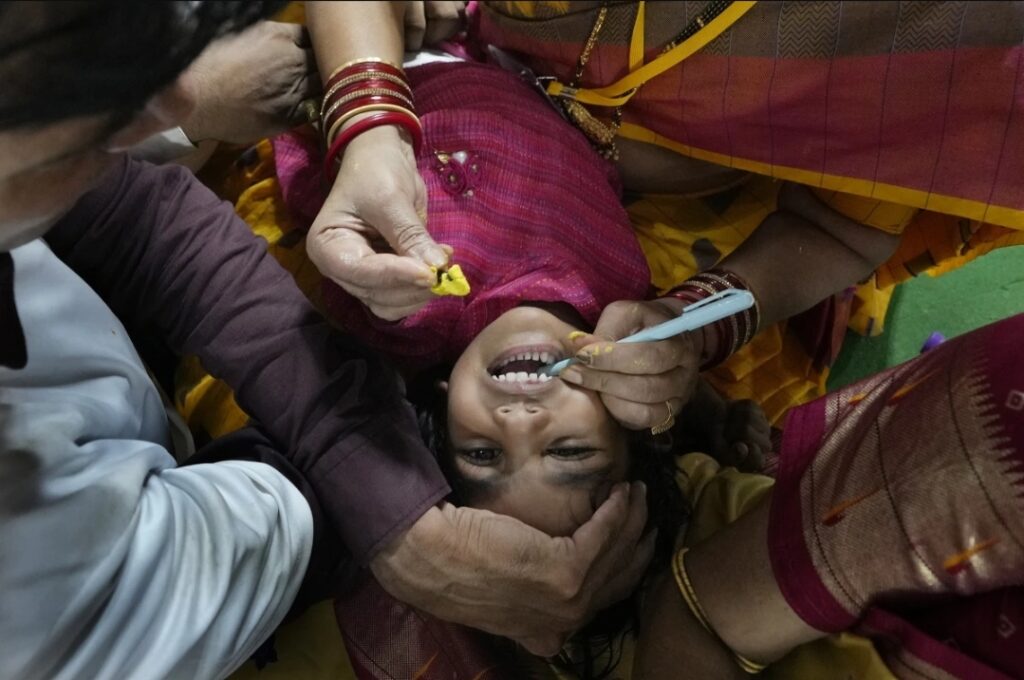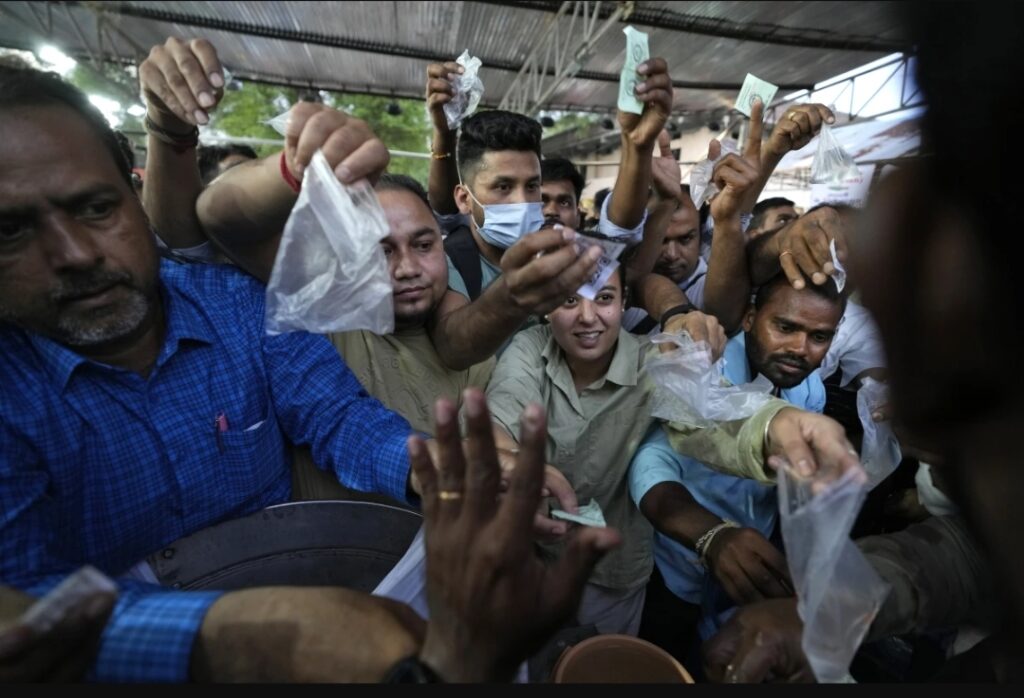
Kakarna Alkananda, a member of the Goud
family, keeps a child’s mouth open with the help of a pen as she prepares to insert a live fish stuffed with a yellow herbal paste into the mouth, in Hyderabad, India, Saturday, June 8, 2024. Every year thousands of asthma patients arrive here to receive this fish therapy from the
Bathini Goud family, which keeps a secret formula of herbs, handed down by generations only to family members. The herbs are inserted in the mouth of a live sardine, or murrel fish, and slipped into the patient’s throat. (AP Photo/Mahesh Kumar A.)
HYDERABAD, India (AP) — A mother encourages her daughter to fully open her mouth to swallow a live fish holding “the medicine” she believes will help cure her child’s asthma, as scores clamor about, gulping down their own fish and hoping for the best.
Each summer, on a day deemed auspicious by astrological calculations, people suffering from asthma and other respiratory ailments flock to the southern Indian city of Hyderabad to swallow a small live fish with its mouth stuffed with a secret herbal treatment that only one family can craft.
Legend has it that in 1845 a wandering saint presented a secret formula of miracle herbs to Veeranna Goud, a man living in the old city of Hyderabad, and instructed him to give it to asthma patients for free. Since then, Goud’s descendants, known as the Bathini family, have preserved the tradition and kept the herbal formula under wraps, shared only among male descendants.

Asthma patients crowd around a fisheries stall to collect live fish to be used in a therapy for their asthma, in Hyderabad, India. (AP Photo/Mahesh Kumar A.)
“My great-great-grandfather, Veeranna Goud, passed this secret formula to his sons and they passed it on to their sons and now we are the fifth generation to keep the tradition,” said Kakarna Alkananda, who helps oversee the distribution, though she is not privy to the formula.
It is said that the fish travels down the throat and relieves any phlegm or congestion.
“My mother has been taking this treatment for seven years now, and it has brought her much relief. She’s breathing easier, and her attacks have become less frequent,” said Aash Mohammed, who traveled for more than 20 hours by train from the Indian capital New Delhi with his family.
The Bathini family has to call the treatment “prasadam” which roughly translates as “an offering” after a local organization that works to dispel superstitious beliefs won a lawsuit forbidding them from describing the treatment as “medicinal.”
Still, the practice enjoys support despite objections from scientific groups and others who say there is no proof behind it, and even call it unsanitary.
People buy their fish from the government fisheries department stall on site. Though the treatment is free, each fish costs 40 rupees or about 50 cents. After collecting the live fish in a plastic bag filled with water, each person gives it to an attendant working with the Bathini family, who squeezes a yellow herbal paste in the fish’s mouth and helps them swallow it.
Thousands have used the “prasadam” this year, according to organizers.
The local government sets up the makeshift structure for the event while overseeing security and sanitation measures.
READ: Mental health must be top priority, says Cebu clinical psychologist
WHO: Basic health services lacking in PH, Western Pacific

